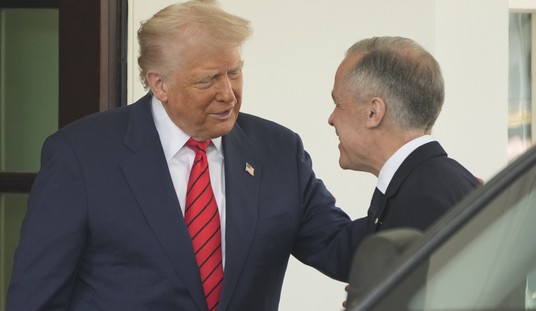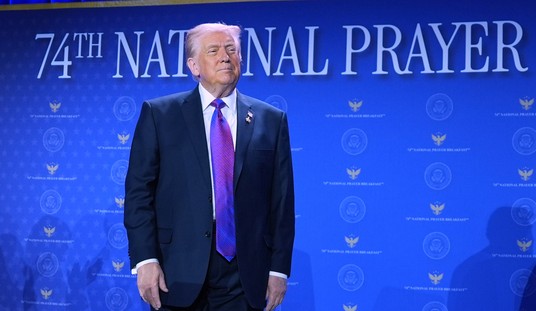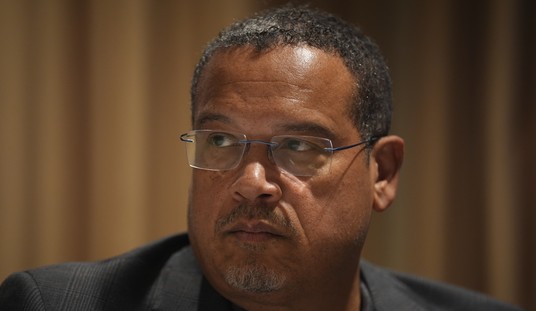Sound and fury, signifying … nothing?
The Jan. 30-31 poll found that 49 percent of American adults said they either “strongly” or “somewhat” agreed with Trump’s order, while 41 percent “strongly” or “somewhat” disagreed and another 10 percent said they don’t know…
The Reuters/Ipsos poll found 31 percent of Americans feel “more safe” because of the ban, compared with 26 percent who said they felt “less safe.” Some 38 percent said they felt the United States was setting “a good example” of how best to confront terrorism, while 41 percent said the country was setting “a bad example.”
Democrats were more than three times as likely as Republicans to say that the “U.S. should continue to take in immigrants and refugees,” and Republicans were more than three times as likely as Democrats to agree that “banning people from Muslim countries is necessary to prevent terrorism.”
A majority opposes Trump’s policy for giving preference to Christian refugees but even that number might move if Team Trump emphasized that Christians from Syria were actually disfavored under Obama’s refugee policy. Sell the new policy as a correction to the previous administration’s mistake and you might get people to see it as justifiable compensation for an oversight, not a matter of pure religious preference.
This is interesting, though. The columns here, in order, are “Total,” “Democrats,” “Republicans,” and “Independents.” When you ask people if the U.S. should open its borders to refugees fleeing foreign conflicts, a plurality says yes (46/42). When you mention foreign conflicts involving ISIS specifically, the plurality grows a bit bigger.

Something for Trump to consider in shaping Syria refugee policy going forward. Of note: A Rasmussen poll out a few days ago found support for Trump’s policy much stronger, at 57/33, but that comes with an asterisk. The Rasmussen poll was taken on January 25-26, before Trump’s order was signed on the 27th and the airport protests and media nervous breakdown began. Today’s poll from Reuters was conducted on January 30-31. You can thus read the new data as glass half-full or half-empty as you prefer. The half-empty version is that the coverage and the protests did knock support for the policy lower, and might see it drop further depending upon how much public agitation against it continues. The half-full version is that the left spent a lot of energy over the last four days trying to convince the public that the long night of fascism had at last descended upon the United States. Result: Nothing worse than a modest decline in public support for Trump’s position, and it’s still net favorable on balance. I’d be pretty happy with that result if I were on Team Trump.
The Times asks an interesting question today about the macro politics of this. Namely, has Trump’s willingness to stare down the left on the travel ban given him the extra political capital he’ll need on the right to legalize DREAMers?
The powerful and poignant images and stories of refugees and international travelers caught at airports over the weekend by President Trump’s immigration order provoked sympathy and outrage around the world.
Now think of those moving personal tales and pictures multiplied exponentially to encompass thousands of young immigrants living in the United States — many more culturally American than foreign — and being forcibly removed from their homes, schools and jobs.
Some Republicans have contemplated those potentially searing depictions and worry they could provoke an outcry that would dwarf this weekend’s response to the new restrictions.
If Trump caves on DREAMers, border hawks will complain — but not as vociferously as they would have if not for last weekend’s order. Immigration politics is, after all, partly a test of mettle. He passed his first big test in going ahead with the travel ban despite facing tremendous pressure from the other side, so he can probably afford a lower grade on whatever deal ends up being worked out on DREAMers. The immediate question, though, is whether, buoyed by the results of the Reuters and Rasmussen polls, Trump will actually double down on the travel ban by expanding the list of countries mentioned in it to include other terror factories like Pakistan and Saudi Arabia. Here’s Reince Priebus from last weekend suggesting that that’s on the table.








Join the conversation as a VIP Member